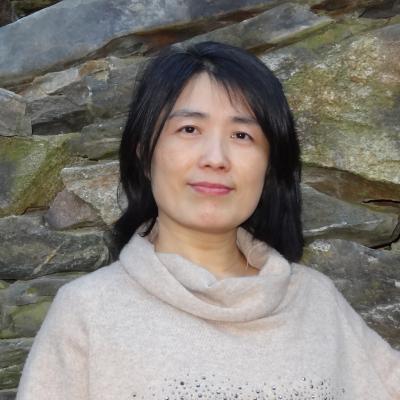Odean Serrano and Meredith Gore will be presenting “Systemic Artificial Intelligence Architecture for Wildlife Trafficking and the Links to Transnational Crimes” at the next GeoBytes webinar on Friday, February 26th at 12:00 pm EST. The webinar is FREE for all ASPRS and CaGIS members and $25 for non-members.
Please see the CaGIS GeoBytes page for more information on registering.
Abstract
Presently machine learning and Artificial Intelligence offer a suite of novel solutions for understanding and resolving complex societal problems. “AI for Social Good” provides tools for understanding, predicting, forecasting challenges such as wildlife trafficking, a globally distributed transnational crime generating billions of USD annually. Bringing the suite of AI possibilities to bear on the problem on wildlife trafficking requires we understand each variable and the interactions among the variables across all geographies of the crime. Specifically, understanding the supply chain reach, function, the commodities, the level actors, the networks, the physical infrastructures and transport modes, the markets, and the fabricated demand, and the convergence of wildlife trafficking with other transnational crimes.
This presentation will discuss the rudimentary building blocks that comprise the wildlife trafficking supply chain across space and time. Each node along the supply chain is a crime ecosystem in it of itself and thus requires associated disciplines along the continuum to address the critical nodes along the continuum.
Within a wildlife trafficking AI model, it is necessary to plot: 1) the entities that derive data and analysis within and across each of the model nodes; 2) the authoritative Law Enforcement stakeholders that will be using individual segments of the AI model; 3) each level and scale of the operational and strategic entities that will be applying the knowledge attained from an aggregated Transnational Crimes model depiction. Using a common ontology for measuring and defining these variables can help advance that mission. The result is that multiple stakeholders will be the audience and recipient to augment their missions and operations from the knowledge of the nodes and node interactions. The aim of this work is the multi-disciplinary application for economic stability and societal good.
Dr. Odean Serrano worked for the U.S. Government for 26 years. At NASA Kennedy Space Center she was shuttle operations engineer overseeing the collaboration of engineering teams readying space shuttles for launch and landing. At NASA Headquarters she led inter-agency partnerships and was a co-author on 3 Presidential Executive Orders. In 2005, Odean joined the National Geospatial-Intelligence Agency as an intelligence officer. She designed and led an Intelligence Community (IC) environmental security mission addressing climate, water, food, and ecosystems in alignment with national security priorities and led a series of interagency fora to address each of the environmental security themes. In 2015, the Director of National Intelligence, James Clapper designated Odean as the first IC lead for Combatting Wildlife Trafficking (CWT), representing all IC agencies on the CWT Presidential Task Force and spearheaded the first InterAgency CWT Symposium. She served as an IC/University liaison forging partnerships and student pathwaysfor the next generation of geospatial professionals. Odean retired from the USG in 2018 and founded the Countering Wildlife Trafficking Institute to provide GEOINT for the interdiction and disruption of transnational criminal networks. Dr. Serrano is a Saint Louis University Adjunct Professor and leads the GeoSLU CWT Working Group. In 2020, Odean joined the Earth League International, the First Intelligence Agency for Earth, leadig GEOINT for mission operations. Degrees: Ph.D. Environmental Science and Policy, George Mason University; MS in Environmental Science and Policy, Johns Hopkins; BS Mathematics, University of S. Florida, Tampa.
Dr. Meredith Gore is a conservation social scientist exploring relationships between human behavior and the environment, an Associate Professor in the Department Geographical Sciences at University of Maryland, and lead PI for the NSF. Prior, Dr. Gore was an Associate Professor in the Department of Fisheries & Wildlife in the College of Agriculture and Natural Resources at Michigan State University (MSU). She also serves as a senior science advisor at the State Department Office of the Geographer and Global Issues. She assists the leadership on the Presidential Task Force on Wildlife Trafficking and other efforts under the US Strategy to Combat Wildlife Trafficking. Dr. Gore writes analysis and intelligence assessments for senior Department and US Government officials on environment, science, technology and health issues, including wildlife trafficking, illegal fishing, illegal logging, climate change, health security, and other scientific and technical issues that influence foreign policy and national security. Dr. Gore is currently a PI on two National Science Foundation awards: Detecting and Interdicting Illicit Wildlife Trafficking Supply Chains and Disrupting Wildlife Trafficking Networks and CoInvestigator on Network Exploring Wildlife Trade. Degrees: PhD in Natural Resource Policy and Management, Cornell University, MA in Environment and Resource Policy, George Washington University, and BA in Anthropology and Environmental Studies, Brandeis University.


